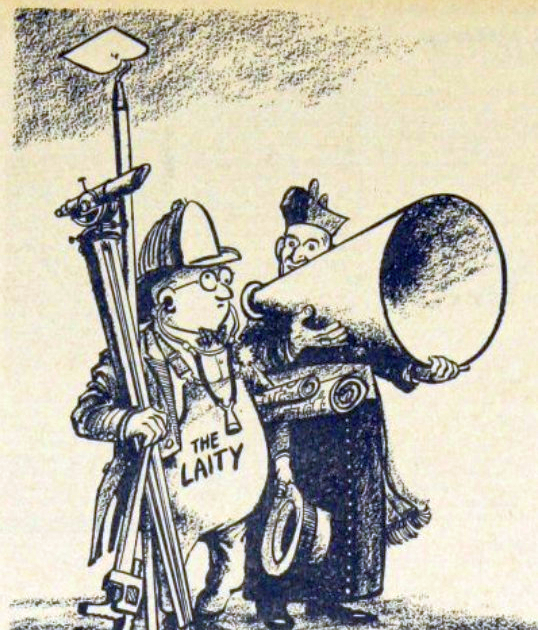- Feb 5, 2002
- 166,650
- 56,274
- Country
- United States
- Faith
- Catholic
- Marital Status
- Married
- Politics
- US-Others
This Paix Liturgique Letter 776 was published in French on December 18, 2020, but never translated into English. It is really good and deserves to be available to English readers. And it has only improved with age. — PAK
On the occasion of the publication of Cyril Farret d’Astiès’ book Un heureux anniversaire. Essai sur les cinquante ans du missel de Paul VI, we asked him about this work, with the aim of highlighting the importance that laity have played, and continue to play, in defending the traditional Mass.
When the Tridentine Mass was de facto banned [now more than] fifty years ago, its users, obeying the instinct of the Christian people’s faith — the sensus fidelium — fought to ensure that it continued to be celebrated: this is why it was maintained and borne down to us. They supported, and sometimes even helped to enlist, the courageous priests who continued to say it, and then they assisted the communities that organized themselves in order to continue supplying traditional priests: the Society of St. Pius X and, later, the Ecclesia Dei institutes. These efforts were very concrete — material aid to priests and communities; driving many kilometers every Sunday to attend the Holy Sacrifice — but also intellectual and editorial, through the publication of magazines, brochures, and essays. Just think of the importance of the publications of Jean Madiran, Arnaldo Xavier da Silveira, Louis Salleron, Romano Amerio, and so many others, alongside priests like P. Calmel, Abbé Dulac, and bishops like Mgr Lefebvre and Mgr de Castro Mayer.
Today, it’s Cyril Farret d’Astiès’ turn to peacefully, but uncompromisingly, explain the immense damage to faith and piety caused by the liturgical reform that followed the Second Vatican Council. The approach of all these laity who, for half a century, have been militating in this way through their religious practice or their pen seems like a paradoxical fruit of Vatican II, which, in its decree Apostolicam Actuositatem on the apostolate of the laity, affirmed “its desire to make the apostolic activity of the People of God more intense”!
Continued below.

 www.newliturgicalmovement.org
www.newliturgicalmovement.org
On the occasion of the publication of Cyril Farret d’Astiès’ book Un heureux anniversaire. Essai sur les cinquante ans du missel de Paul VI, we asked him about this work, with the aim of highlighting the importance that laity have played, and continue to play, in defending the traditional Mass.
When the Tridentine Mass was de facto banned [now more than] fifty years ago, its users, obeying the instinct of the Christian people’s faith — the sensus fidelium — fought to ensure that it continued to be celebrated: this is why it was maintained and borne down to us. They supported, and sometimes even helped to enlist, the courageous priests who continued to say it, and then they assisted the communities that organized themselves in order to continue supplying traditional priests: the Society of St. Pius X and, later, the Ecclesia Dei institutes. These efforts were very concrete — material aid to priests and communities; driving many kilometers every Sunday to attend the Holy Sacrifice — but also intellectual and editorial, through the publication of magazines, brochures, and essays. Just think of the importance of the publications of Jean Madiran, Arnaldo Xavier da Silveira, Louis Salleron, Romano Amerio, and so many others, alongside priests like P. Calmel, Abbé Dulac, and bishops like Mgr Lefebvre and Mgr de Castro Mayer.
Today, it’s Cyril Farret d’Astiès’ turn to peacefully, but uncompromisingly, explain the immense damage to faith and piety caused by the liturgical reform that followed the Second Vatican Council. The approach of all these laity who, for half a century, have been militating in this way through their religious practice or their pen seems like a paradoxical fruit of Vatican II, which, in its decree Apostolicam Actuositatem on the apostolate of the laity, affirmed “its desire to make the apostolic activity of the People of God more intense”!
Continued below.

Why Are Laity So Involved in the Liturgical Debate? And Why Is the Continued Struggle Necessary?
These cartoons were published during Vatican II This Paix Liturgique Letter 776 was published in French on December 18, 2020, but never tran...
